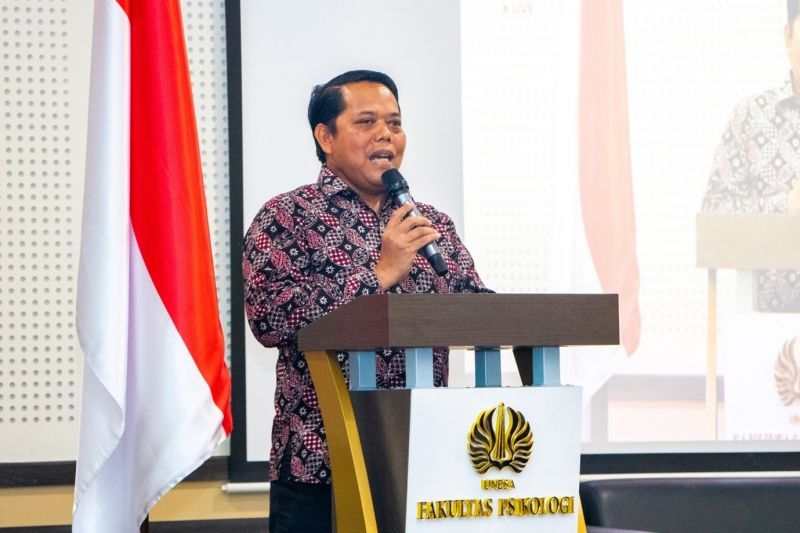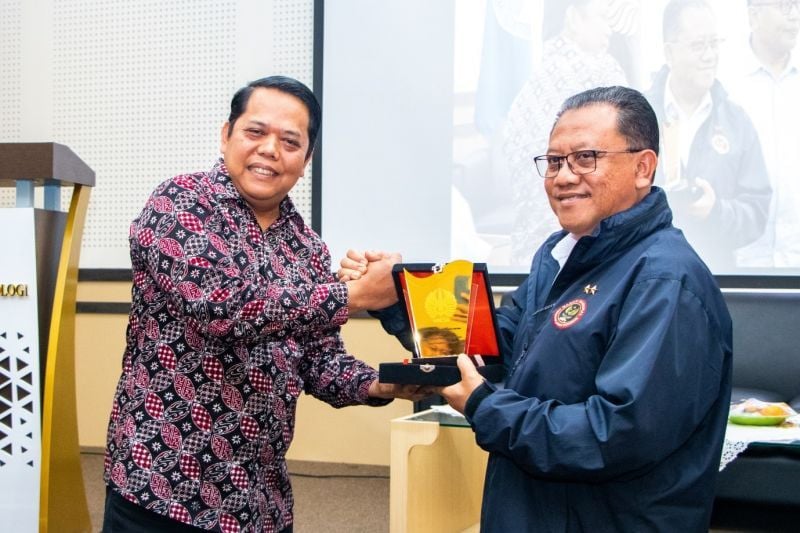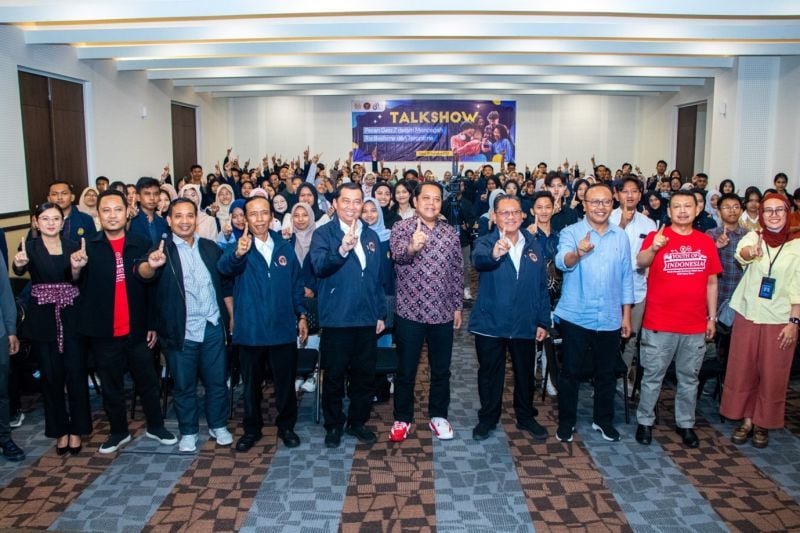Unesa.ac.id, SURABAYA—Directorate of Prevention and Management of Strategic Issues (PPIS) University Negeri Surabaya (UNESA) held a National Talkshow with the theme "The Role of Gen Z in Preventing Radicalism and Terrorism" on Wednesday, 28 August 2024 at the Lidah Wetan Campus 2 Psychology Building Auditorium.
Vice Chancellor III for Research, Innovation, UNESA Ranking, Publication and Science Center, Bambang Sigit Widodo said that preventing radicalism and terrorism requires commitment and collaboration from all parties.
"It cannot only be handed over to BNPT and FKPT (Terrorism Prevention Coordination Forum), but "We need to work together with Higher Education Institutions," said the lecturer at the Faculty of Social and Political Sciences (Fisipol).
UNESA collaborates with BNPT, as well as FKPT, to jointly prevent acts of intolerance and radicalism which could then lead to acts of terrorism. The man who once led the Faculty of Social and Political Sciences or Fisipol (now the Faculty of Social and Legal Sciences) officially opened the talk show with three beats of the loudspeaker.

Deputy Chancellor for Affairs III reinforces the urgency for students to take part in preventing the emergence and development of radicalism on campus.
This activity presenting a number of speakers, Major General TNI Roedy Widodo as Deputy for Prevention, Protection and Deradicalization of BNPT, and Listiyono Santoso, Deputy Dean I for Academic and Student Affairs, Faculty of Cultural Sciences (FBS) Airlangga University. As the activity guide, Silkania Swarizona.
Before the material session, participants were presented with a presentation of the struggle of BNPT RI over the past 14 years, intolerance, hatred, violence, radicalism and terrorism have become a group of annual threats that are often fortified. It turns out that religious symbols and teachings are often manipulated by certain elements with less than praiseworthy intentions.
Even though this threat has the potential to emerge, throughout 2023 to 2024, Indonesia will be declared Zero Terrorist Attack. BNPT research also found that the trend in terrorist attack patterns is changing from open attacks (hard approach) to closed attacks (soft approach) via social media.
< i>

Vice Chancellor III UNESA handed over souvenirs to the speakers.
Maintaining the achievement of free terrorist attacks in Indonesia, BNPT RI implemented the National Action Plan for Preventing and Combating Violent-Based Extremism that Leads to Terrorism (RAN PE) according to Presidential Decree No.7 of 2021 .
As the first speaker, Major General TNI Roedy Widodo introduced the 7 Priority Programs for 2024 as stated in the RAN PE. Among them are programs for the protection of women, children and teenagers, programs for the formation of prepared villages, programs for the formation of peaceful schools, and programs for the formation of campuses, as well as other evaluative work programs.
With the establishment of BNPT, this institution has fulfilled its main tasks in countering terrorism which is considered to be rooted in an attitude of intolerance. "The results of the BNPT research show that of the four indicators, namely Tolerance, Passive Intolerance, Active Intolerance and Exposed Intolerance, the tolerance indicator still accounts for 70 percent," he explained.
This figure represents Indonesia's status which is still relatively safe from the threat of terrorism. However, it has been recorded that since 2023, the pattern of terrorist attacks has been recognized as transitioning to cyberspace, different from previous attacks which were more armed.

Leaders, resource persons, lecturers and students around UNESA in National Talk Show.
Practically , BNPT summarizes actions to prevent the threat of radicalism into a special strategy called Pentahelix. This strategy includes multi-party collaboration and synergy, especially to build strength in fighting the threat of intolerant radicalism.
Listiyono Santoso revealed that Gen-Z is vulnerable to the spread of radical ideas due to excessive use of gadgets. What's worse, social media algorithms can even exacerbate exposure to radicalism. "It is the way of absorbing information that is the problem, because the ability to think critically is starting to weaken," he said.
There is no literacy effort towards content in cyberspace, let alone sorting and selecting information whose truth can be accounted for. If Gen-Z is not alert, they can be provoked by intolerant thoughts. This ultimately also contradicts the constitutional mandate of higher education, namely to instill national values in students. []
***
Reporter: Joy Nathanael (Fisipol), and Saputra (FBS)
Editor: @zam*
Photo: UNESA PR Team
Share It On:






